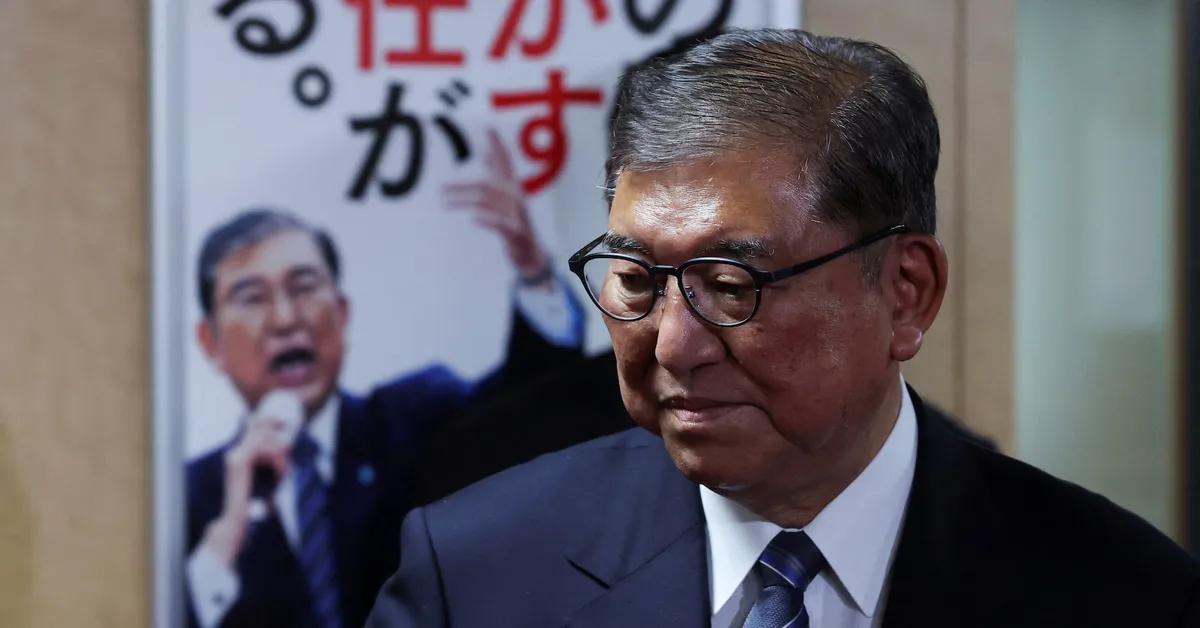
On September 7, 2023, Japanese Prime Minister Shigeru Ishiba announced his resignation, marking a significant moment for the world's fourth-largest economy. Ishiba's departure raises concerns about political stability and policy direction during a challenging economic climate.
Having only recently finalized a critical trade deal with the United States aimed at reducing President Donald Trump's stringent tariffs, Ishiba, 68, expressed his need to take responsibility for a series of electoral defeats. In a press conference, he stated, "I must take responsibility for a series of bruising election losses." Since assuming office less than a year ago, Ishiba has overseen his ruling coalition lose its parliamentary majorities due to rising living costs that have stirred public discontent.
In light of these developments, Ishiba has called for an emergency leadership election within his Liberal Democratic Party (LDP), which has been the dominant political force in Japan for nearly all of the post-war period. He confirmed he would continue to serve until a successor is appointed.
The political uncertainty surrounding Ishiba's resignation has led to significant market reactions, including a sell-off of the Japanese yen and government bonds. Last week, the yield on the 30-year bond reached a record high, reflecting investor concerns over potential shifts in fiscal and monetary policy.
Analysts are particularly attentive to the possibility of Ishiba being replaced by a proponent of looser fiscal policies, such as Sanae Takaichi, a veteran LDP member who has been vocal against the Bank of Japan's interest rate hikes. Takaichi narrowly lost to Ishiba in last year's leadership contest. Another contender is Shinjiro Koizumi, the popular farm minister, who has gained visibility while addressing rising prices.
The incoming leader of the LDP will face significant challenges, particularly as the ruling coalition has lost its parliamentary majority. While it is likely that the new LDP president will also become prime minister, analysts suggest that there is no guarantee of this outcome. The new leader may opt to call a snap election to secure a fresh mandate, especially given the fractured state of Japan's opposition parties.
In the recent upper house election, the far-right Sanseito party made notable gains, bringing previously fringe ideas into mainstream politics. A recent poll by Kyodo News revealed that nearly 55% of respondents believe there is no need for an early election, indicating a complex political landscape ahead.
Michael Brown, a senior research strategist at financial markets brokerage Pepperstone, predicts ongoing selling pressure on the yen and long-dated bonds. He notes that the market will need to account for increased political risk, both regarding the LDP leadership contest and the potential for a general election should the new leader seek a mandate.
Ishiba's tenure, although brief, was marked by the completion of the critical trade deal with the United States, which involves a commitment of $550 billion in investments in exchange for reduced tariffs. The tariffs, particularly those impacting Japan's vital automotive sector, have forced Japan to revise its already subdued economic growth outlook.
In his farewell address, Ishiba expressed hope that his successor would effectively implement the trade deal and foster wage growth to alleviate voter concerns over living expenses. He also highlighted the pressing security challenges his successor would face, notably the recent military parade in Beijing attended by Chinese, Russian, and North Korean leaders.
Yoshinobu Tsutsui, chairman of Japan's largest business lobby, Keidanren, emphasized the urgency for the new leader to establish political stability and unity within the party while swiftly addressing necessary policies. Many voters share this sentiment, with calls for a steady hand during these uncertain times, particularly regarding tariff management and diplomatic relations.
As Japan navigates this transitional phase, the focus now shifts to the upcoming leadership election and its implications for the country's economic policies and political landscape.